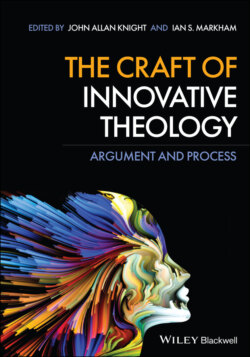Читать книгу The Craft of Innovative Theology - Группа авторов - Страница 42
Incarnation and a Person with Down’s Syndrome
ОглавлениеHerein allow me a confession: much as I love Jesus, part of me wishes that instead of a Jewish male, the Eternal Wisdom had taken the form of a person with Down’s Syndrome. In my experience a person with Down’s is a much more reliable vehicle for disclosing the life of God than most other people. Their obligation to live in the present, their deep compassion and empathy, their sense of fun, and their exceptional capacity for inclusion are all built in; their very biology makes them ideal vehicles for the disclosure of God.
It is true that if God had been incarnate in a person with Down’s, then there would have been a different teaching style. The parables and stories would have been different. The conversations with opponents would have to resort less to good argument and more to intuitive assertion. But this could have all worked: humanity near such a life could still see the reality of God residing in that life in a unique way. It could have still been a life that provoked worship from those around that life.
Now much is made of the challenge of a male Jesus for women. The objection is simple: the experiences of men and women are distinctive; Jesus never knew the challenge of the menstrual cycle or the distinctive experience of childbirth. So how can a male Jesus be representative of all humanity?
The standard answer is simple: to be a human one has to be a particular human. You have to be born into a family, at a certain time, or a certain gender. Although the Incarnation could have taken a variety of forms, it did need to be a form – a particular person. And the Jewishness, maleness, and first centuryness are all part of what it is to be a human person.
However, it is also recognized that the fact that Jesus was male does not mean and cannot mean that women are not complete full forms of humanity. So the first reason why this exercise matters is simply this: it is important for Christian theologians to stress that people with special needs are complete and full forms of humanity. We recognize that it is a contingent fact that the Incarnation took the form of a first-century male and not a logically necessary one. In the same way that God could have been incarnated as a woman, so I am arguing God could have been incarnated as a person with Down’s Syndrome (see Box 2.10).
Box 2.10
At this point, the author links this argument to the wider argument of incarnational possibilities. The point is made that the Incarnation of God in the form of a male Jew was contingent, not logically necessary. This means that the Incarnation could have taken a different form.
